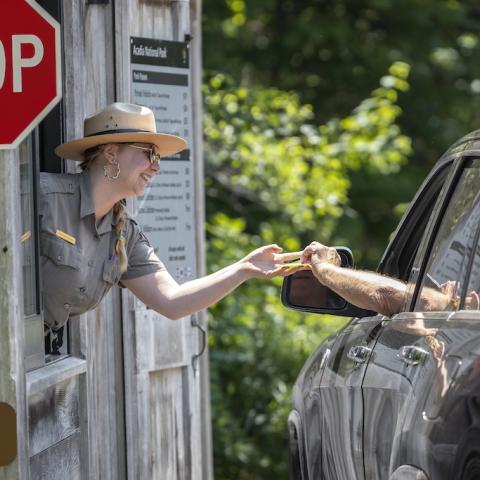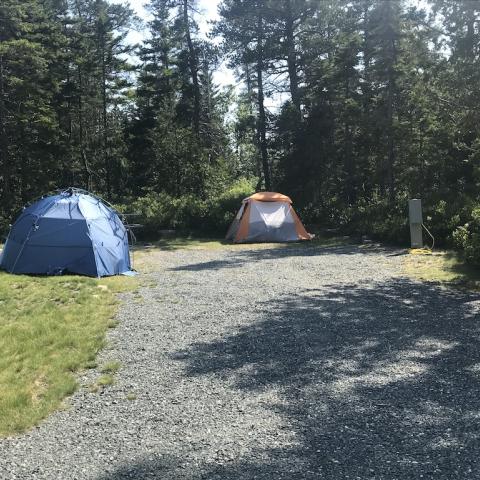
Winter storms can bring excellent cross-country skiing conditions to Acadia National Park. Please be courteous on the trails/NPS
While visitation levels in Acadia National Park during the winter months are far below summer’s peak, the most popular trails and carriage paths can be very busy, especially on a sunny weekend day after a decent snowfall.
Cross-country skiers share the trails with snowshoers, walkers, and people out with dogs. Some simple courtesy on everyone’s part can help preserve the groomed surface of cross-country ski trails carried for by Friends of Acadia, and make time in the park more enjoyable for all.
On carriage roads groomed when snow conditions allow, including in the Witch Hole, Aunt Betty Pond, Hadlock Pond, and Brown Mountain areas, one side is set up with a traditional classic, double-groove, cross-country ski track. The center portion of the roads is leveled and raked to facilitate those who prefer to skate ski.

During winter, signs such as this one help explain guidelines for use of the groomed carriage paths in Acadia National Park / FOA, Earl Brechlin
Establishment of the groomed portion of the trail takes hours of work by volunteers from FOA’s Acadia Winter Trails Association. Setting track requires the use of snowmobiles, or larger, tracked grooming equipment that make several passes to pack down the base. Then special sleds are towed over the snow to create the formal tracks.
Those on snowshoes, bare-booting it, or walking dogs are encouraged to travel on the other side of the path to avoid “posthole” footprints in the ski tracks.
Deep footprints and other obstructions can bring a skier’s smooth glide to a quick halt. Signs are posted at most busy winter trail access points explaining the user lane system.
“Once people understand the reasoning behind the lane system they are usually eager to stick to it,” explains FOA Conservation Projects Manager Paige Steele. “The volunteers from the AWTA work long hours, late into the night and well before dawn, trying to make the ski trails as perfect as possible. Having everyone keep other visitors in mind helps make for a better experience for everyone.”
As in summer, any dogs brought into the park must be kept on a leash no longer than six-feet long.
In winter, fat-tire bikes are allowed on the Park Loop Road, on frozen lakes (be sure the ice is safe!) and on non-groomed carriage paths.
Snowmobiles are allowed on the Park Loop Road and on two sections of carriage path including from Wildwood Stables to Jordan Pond House, and from Bubble Pond to the north end of Eagle Lake. The Cadillac Mountain Summit Road is also open to snowmobiles although the route is not groomed and bare ice patches and high drifts often make some sections impassable.




 Support Essential Coverage of Essential Places
Support Essential Coverage of Essential Places






